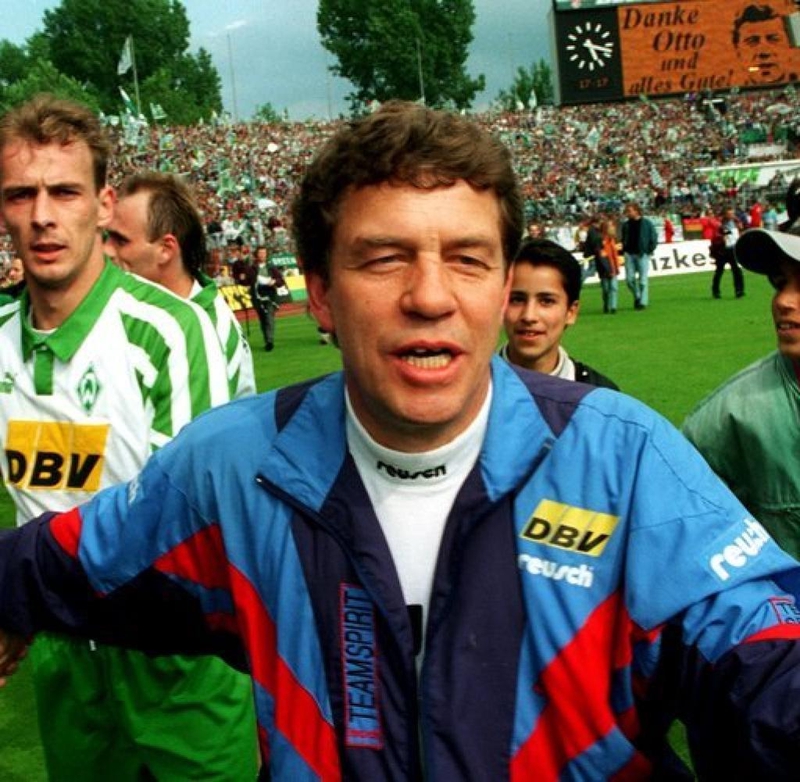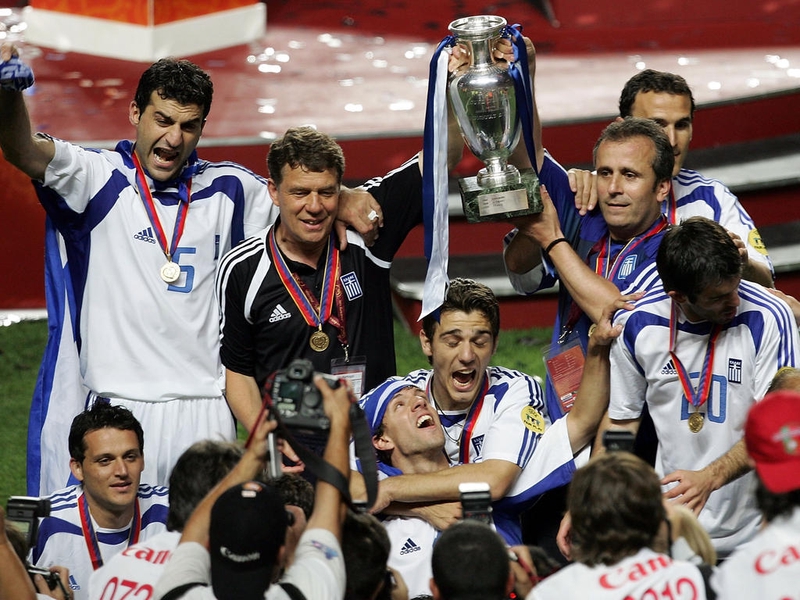On Thursday, the famous Otto Rehhagel celebrated his jubilee. It is hard to believe, but the German coach turned 80.
As a Hertha player, he took part already in the first ever Bundesliga season in 1963/64. After that, Rehhagel, who had learned to be a painter, became a football legend. His career reached its peak in 2004 when he led Greece to the title of European champions. Now he is 80 - and he looks back happily.

Rehhagel seems timeless and ageless. Still full of energy, still a great narrator, he turned eighty on Thursday, and anyone who sees and hears him will not think that they have to deal with an old gentleman. Because the Essen-born ex-coach still radiates too much energy, coupled with an evergreen curiosity about everything that makes life worth living and football worth seeing.
Rehhagel likes to tell entertaining stories about his rich experience of 1033 Bundesliga games as a coach and player, but he does not ignore the trends and developments of the present-day football. He, who has always called himself a "child of the Bundesliga", was already there during the inauguration of the new league on 24 August 1963 - as a tireless defender of Hertha BSC in a 1:1 match against 1. FC Nurnberg. Irony of fate is that the coach said good-bye to football on 15 May 2012 in his last appearance on a high level, being again in the service of Hertha. 2:2 at Fortuna Dusseldorf in the relegation play-off return match after a 1:2 home defeat was not enough to prevent the fall into the Second Bundesliga.
However, the life of this very special coach had rarely to do with relegations - the only other case was at Arminia Bielefeld, where he came in October 1978, and in May 1979, despite a 4-0 triumph at Bayern Munich, the team returned to the second division. And when he asked to be released to the Bundesliga club Fortuna Dusseldorf in October 1979, the Bielefeld President Jörg Auf der Heyde gave the following comment: "With our young and promising squad, he proved that the prejudice is true that he can only achieve short-term success with his teams. "
What a mistake! Rehhagel, who won the DFB Cup with Fortuna in 1980, his first of eight titles, during his 14-year spell at Werder Bremen got rid of the reputation of being a short-term motivator and savior. In 1981, he led the North Germans back to the elite, and went on to write one of the greatest success stories in the 55-year Bundesliga history. The "firefighter" Rehhagel became the "King Otto", loved and admired by the green-white fans and occasionally cursed by the media, who looked at the actually lively, but sometimes ill-tempered coach with a strong dose of mistrust.

His wife Beate, whom he met while skating in the Grugahalle in Essen and married in the Bundesliga founding year of 1963, was a kind of manager and telephone guard of her Otto. Interview requests ("What do you want from the coach?") often did not come true, also because Rehhagel ("I'm a Democratic dictator") liked to live without internet, smartphones and social media and often simply ignored his critics.
Rehhagel's first long-term project after coaching Offenbach (1974/75), a brief visit to Bremen (February to June 1976) and working at Dortmund (1976 to 1978), Bielefeld and Dusseldorf did not promise any possible success. But Rehhagel and Werder claimed five titles: the European Cup Winners' Cup in 1992, the Bundesliga titles in 1988 and 1993 as well as the German Cup victories in 1991 and 1994. The coach also gained a public reputation that catapulted him into the very first line of German football tacticians. Rehhagel's reputation was further improved by his quick wit and eloquence ("the one who wins is the one who plays a modern game"), in which he wrapped his views on professional football.
At the time, looking at Bayern defeated by Werder many times, he could safely say: "Money does not score goals." Today, his opinion is different: "The best football is played where most money is spent." In Bremen, Rehhagel cemented the reputation of a smart football educator whose disciples unconditionally adhered to him. Rudi Völler, today sports manager at Bayer Leverkusen, said about his then boss in "kicker": "For me, he was totally positive, the most important coach in my career. I was not forced into any templates with him, there were no tactical restrictions." No wonder, all his life Rehhagel was a football pragmatist who knew how to make the best out of his options.
Misunderstanding at Bayern
Except for Bayern Munich. He moved to the Bundesliga giants after all the successful years in 1995 - and failed there because of typically high expectations, the hierarchies in the club and a little bit because of himself. Rehhagel was more the type of coach and autocrat, whose know-how could be implemented in more quiet places of the league with some understanding of human weaknesses. After a home defeat against Hansa Rostock, the Bayern dismissed him after only nine months, and so was the door open for Rehhagel to return to the club, whom he had helped as a player between 1966 and 1972. In 1996, "King Otto" made a comeback to Kaiserslautern, who had just relegated from the Bundesliga for the first time ever. This was followed by two magical years, a quick return to the elite in 1997 and a miracle in 1998: the first and so far the only Bundesliga title won by a promoted team.
It was a landmark of Rehhagel's career, which reached its peak in 2004. The "King Otto" became "Rehakles" when he won the Euro in 2004 with the outsiders Greece, beating the hosts and favorites Portugal in the final match. That triumph made the German a true hero in Greece. With his defensive tactics, his playfully limited team robbed the significantly better opponents of fun in football. Not everyone like it.

Now he is eighty and looks back on his life with pleasure. Probably Rehhagel would still consider himself fit enough to stand on the touchline as a coach. After all, once he said: "I compel my people to think that at the age of eighty Michelangelo was still on the scaffolding and got 30,000 Gold Taler from the Pope for doing his work and completing the Last Judgment on the front of the Sistine chapel." Good work is timeless, as Rehhagel has proved. In his own way - with a few football miracles.
Comments